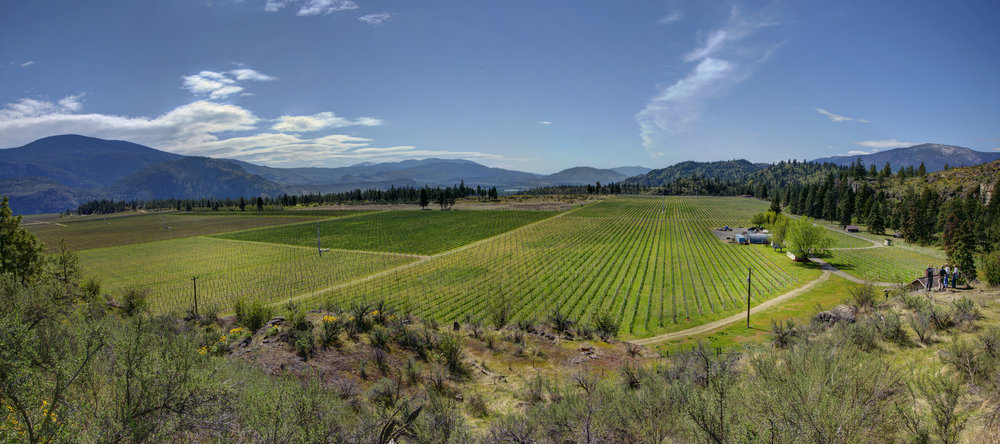
By Rick VanSickle
Okanagan Crush Pad owners Christine Coletta and Steve Lornie have added to their estate holdings with a familiar vineyard that has helped shape their wine portfolio at Haywire and Narrative.
The acquisition of Secrest Mountain Vineyards Ltd. in Oliver includes a 50-acre property planted in 2000 with 38 acres of Pinot Noir, Gamay Noir, Chardonnay, Pinot Gris, Pinot Blanc and Gewürztraminer. The property has been under lease to Okanagan Crush Pad since 2010 and is currently transitioning to organic certification. Grapes from this vineyard have been instrumental in allowing Okanagan Crush Pad to increase production of its own wine labels, with Secrest Mountain Vineyard grapes earmarked to many of the winery’s top Haywire and Narrative wines.
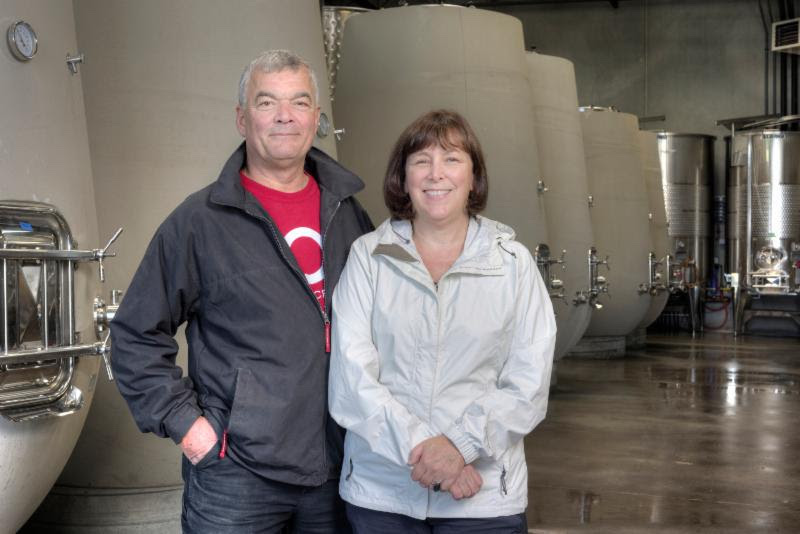
“We thank Brad and Dave Wise for the hard work they have done over the years and wish them well in their future endeavours,” said Lornie, above with Coletta. “We look forward to working with their crew and completing the organic farming conversion they started.”
Secrest Mountain Vineyard, which neighbours Covert Farms, is a flat, south-west facing bench in a high mountain setting 487 meters above sea level, with alluvial soils, studded with coarse gravel, sandy loam and limestone layers.
“The cool high altitude setting of Secrest Mountain yields exceptional grapes,” notes chief winemaker Matt Dumayne. “We can harvest at full physiological ripeness with lower sugar levels, and subsequently create delicate, lower alcohol wines, which is exactly our aim. The vineyard has proven itself over the years, and we are able to produce some of the best sparkling, Pinots and Gamay that I have made over the course of my career.”
With this acquisition, Okanagan Crush Pad now has 80 acres of grapes between their Switchback (Summerland), Garnet Valley Ranch (Summerland) and Secrest Mountain (Oliver) and aims to plant an additional 55 acres at their Garnet Valley Ranch and Monro Avenue sites, to bring the total to 135 acres.
“Owning and controlling our grape supply is critical to our future,” notes owner Christine Coletta. “We have been very fortunate that the Wise family shared our vision, and have put in three years of hard work to convert to the farm to organic practices. Now we are in a position to see that work carried on. While our winemaking team is a key asset in the processing chain, the farmer is the unsung hero in any wine narrative. The more work done in the vineyard, the less intervention required in the cellar, and that suits our winemaking ethos fully.”
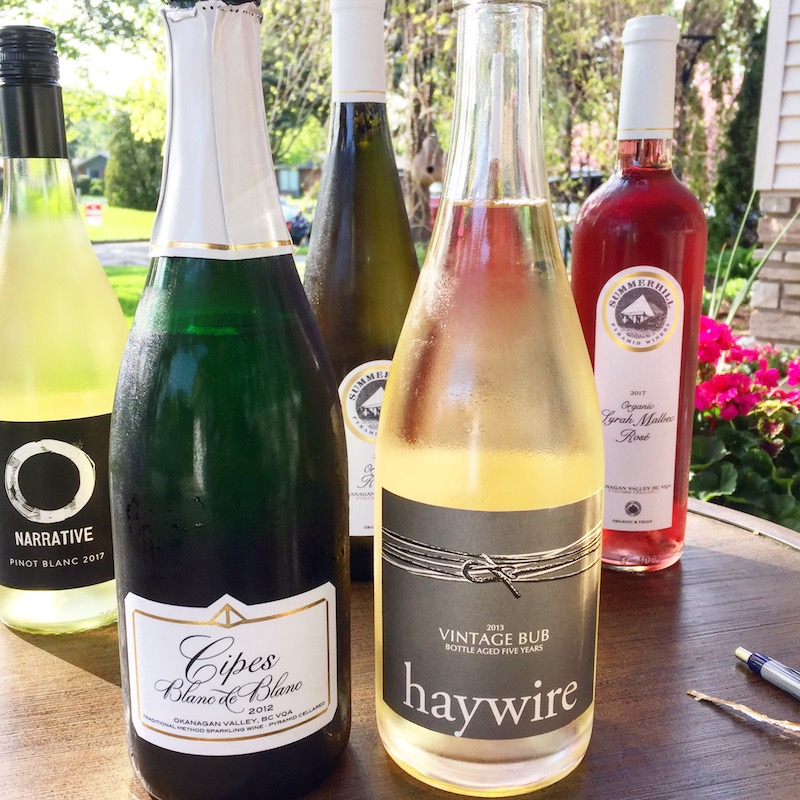
In this post, we have reviews for new wines from Haywire and Narrative as well as Summerhill (plus the Alive “vegan” series of wines from Summerhill) and JoieFarm’s first wine in a natural wine side project called Chic Fille.
Haywire and Narrative Wines
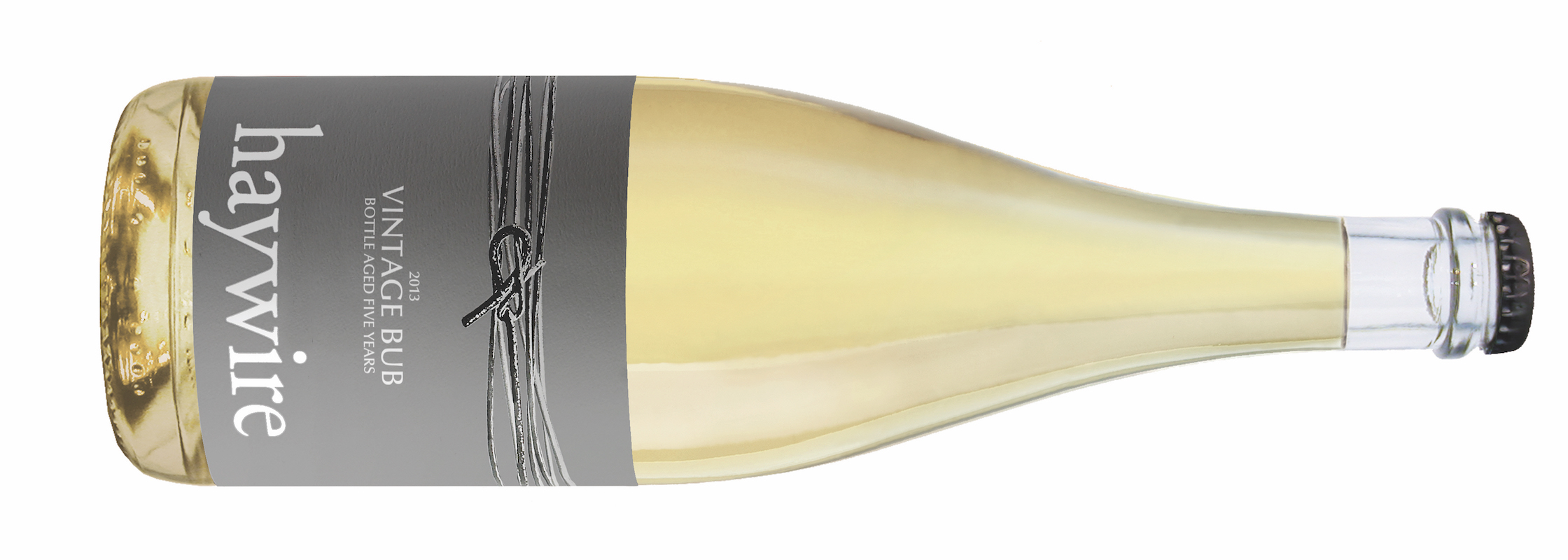 Haywire Vintage Bub 2013 ($35, 92 points) — This is a special cuvee that was bottled in early January, 2014, and remained on its lees in triage for 52 months. No dosage was added at disgorgement. It has a vigorous/lively mousse with deep brioche and flinty aromas to go with baked apple, lemon and grapefruit accents. Even with aging, it shows an austere profile on the palate with zippy, zesty acidity and a clean profile that highlights the apple, citrus, minerals, baked bread notes and wonderful freshness through the finish.
Haywire Vintage Bub 2013 ($35, 92 points) — This is a special cuvee that was bottled in early January, 2014, and remained on its lees in triage for 52 months. No dosage was added at disgorgement. It has a vigorous/lively mousse with deep brioche and flinty aromas to go with baked apple, lemon and grapefruit accents. Even with aging, it shows an austere profile on the palate with zippy, zesty acidity and a clean profile that highlights the apple, citrus, minerals, baked bread notes and wonderful freshness through the finish.
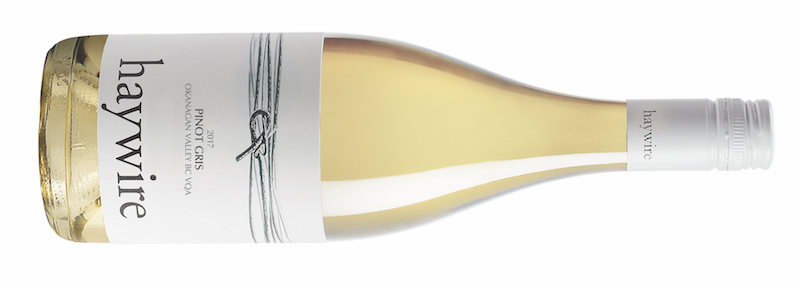 Haywire Pinot Gris 2017 ($23, 89 points) — This Gris was naturally fermented and aged in one of the estate’s new rectangular concrete tanks for 8 months. It’s ripe and juicy on the nose with notes of creamy orchard fruits, white peach and melon. It has wonderful texture on the palate with bright acidity that lifts the profile of apple and creamy peach fruits.
Haywire Pinot Gris 2017 ($23, 89 points) — This Gris was naturally fermented and aged in one of the estate’s new rectangular concrete tanks for 8 months. It’s ripe and juicy on the nose with notes of creamy orchard fruits, white peach and melon. It has wonderful texture on the palate with bright acidity that lifts the profile of apple and creamy peach fruits.
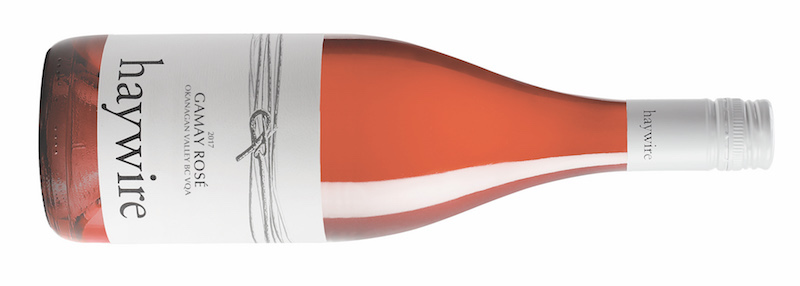 Haywire Gamay Rosé 2017 ($23, 90 points) — This Gamay was fermented dry using native yeasts in a mix of both stainless steel and concrete tanks. Look for an interesting and multi-dimensional nose of savoury red fruits and subtle herbs. On the palate, a range of cherry and raspberry fruits are joined by bramble and fresh herbs with a mouth-watering finish.
Haywire Gamay Rosé 2017 ($23, 90 points) — This Gamay was fermented dry using native yeasts in a mix of both stainless steel and concrete tanks. Look for an interesting and multi-dimensional nose of savoury red fruits and subtle herbs. On the palate, a range of cherry and raspberry fruits are joined by bramble and fresh herbs with a mouth-watering finish.
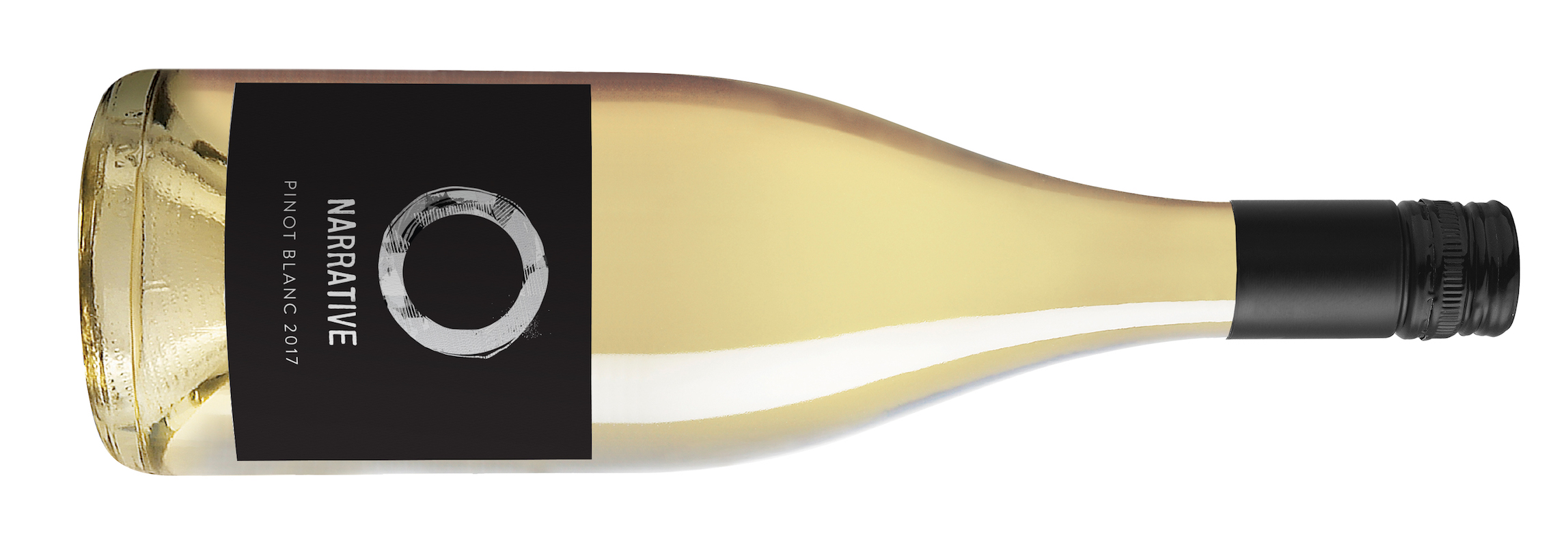 Narrative Pinot Blanc 2017 ($23, 88 points) — Narrative wines are made at Okanagan Crush Pad winery in Summerland by the same team at Haywire. This Pinot Blanc has an attractive nose of citrus, melon, apple and herbs. The palate shows lovely texture and notes of citrus, melon, apple skin and a clean, fresh finish.
Narrative Pinot Blanc 2017 ($23, 88 points) — Narrative wines are made at Okanagan Crush Pad winery in Summerland by the same team at Haywire. This Pinot Blanc has an attractive nose of citrus, melon, apple and herbs. The palate shows lovely texture and notes of citrus, melon, apple skin and a clean, fresh finish.
Summerhill Pyramid Winery
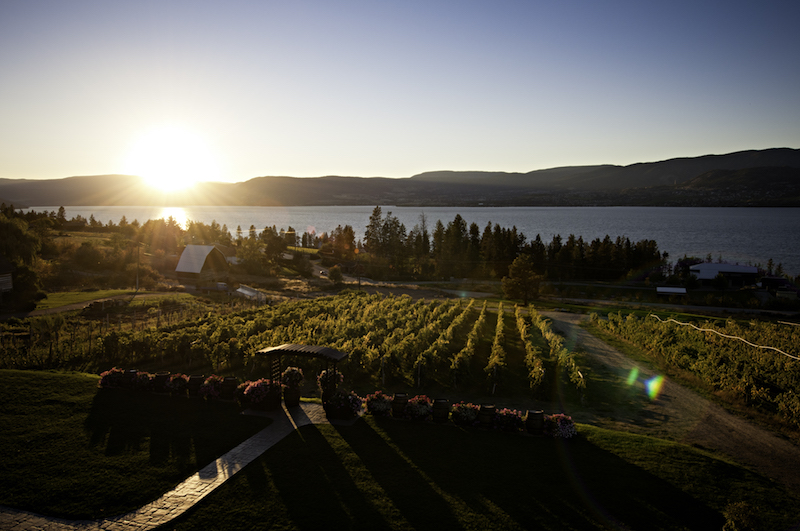
Organic and biodynamic winemaking practices have always been an integral part of Summerhill since the Kelowna vineyard was purchased by the Cipes family in 1986.
Producing wine organically has a very meaningful benefit to the environment, the winery says, and some scientists suggest that eating organic foods greatly benefits our health as well.
Aside from these benefits, Summerhill believes that organic practices allow for grapes in their vineyards to honestly express their surroundings, providing deep, terroir-driven qualities that are a true articulation of Okanagan terroir.
Summerhill is also know for its practice of aging wines in a pyramid that has been precisely constructed at the estate. To learn more about the qualities pyramid aging brings to the wines at Summerhill, go here.
A selection of recently released Summerhill wines:
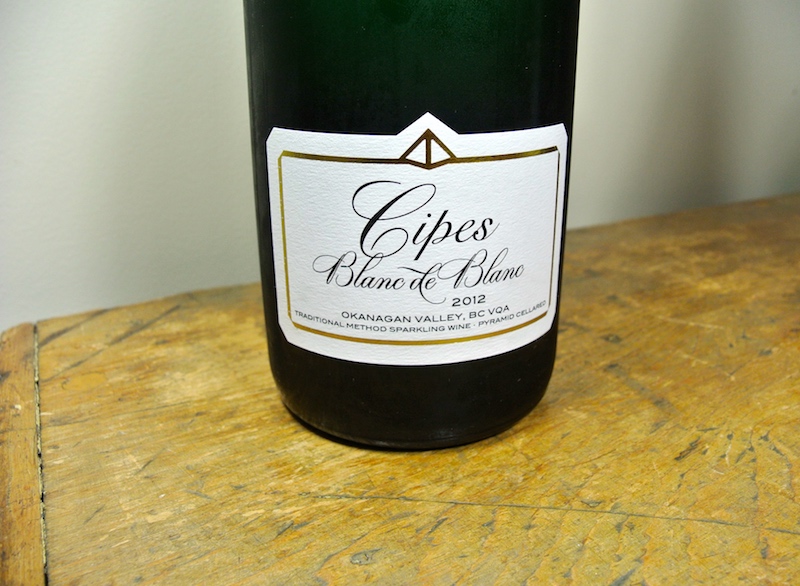
Summerhill Cipes Blanc de Blanc 2012 ($40, 93 points) — This beautiful traditionally made 100% Chardonnay sparkler is from a blend of Okanagan vineyards and spends a minimum of four years on the lees. Such an enticing nose of Meyer lemon, poached pear, brioche, melba toast, summer apples and toasted almonds. It is wonderfully clean and fresh in the mouth with a fine mousse that tickles the palate and lifts the creamy flavours of apples, pears and citrus accents that all lead to a long, long finish. Love this perfectly balanced bubbly.
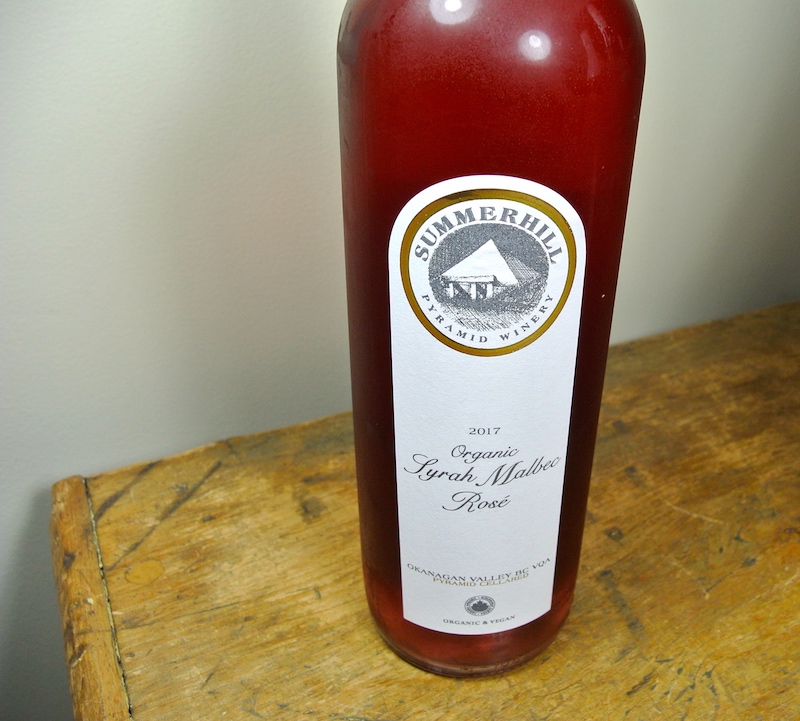
Summerhill Pyramid Winery Organic Syrah Malbec Rosé 2017 ($23, 89 points) — Made with fresh, first run juice (saignée style) and cold soaked for 24 hours, this is a bold expression of rosé with ripe raspberry, cherry and watermelon with underlying savoury notes. On the palate, the range of red fruits and touch of sweetness feels balanced and refreshing. Only 11% abv, so a lovely summer quaffer for sure.
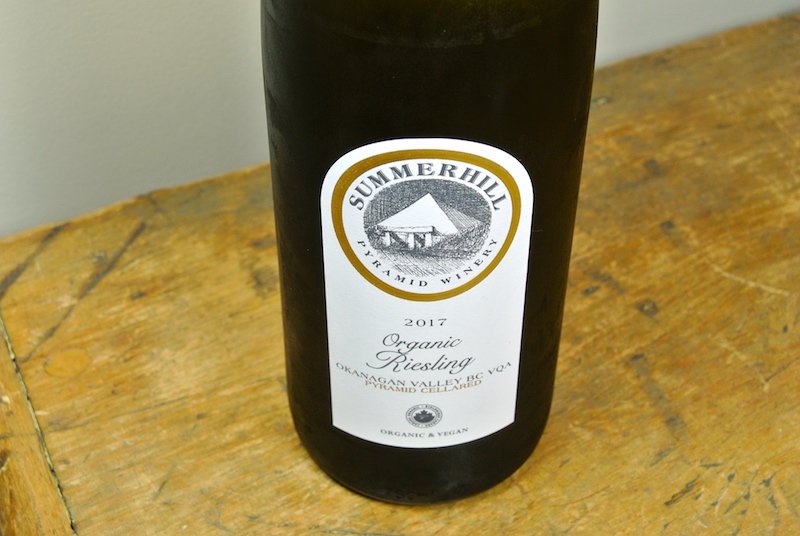
Summerhill Pyramid Winery Organic Riesling 2017 ($22, 89 points) — A pure and minerally-driven Riesling that rocks with lime, lemon, ginger, tangerine and river-rock minerality. It’s made in an off dry style with the honey-sweet notes and range of citrus and minerals held together nicely by mouth-watering acidity.
Alive, by Summerhill
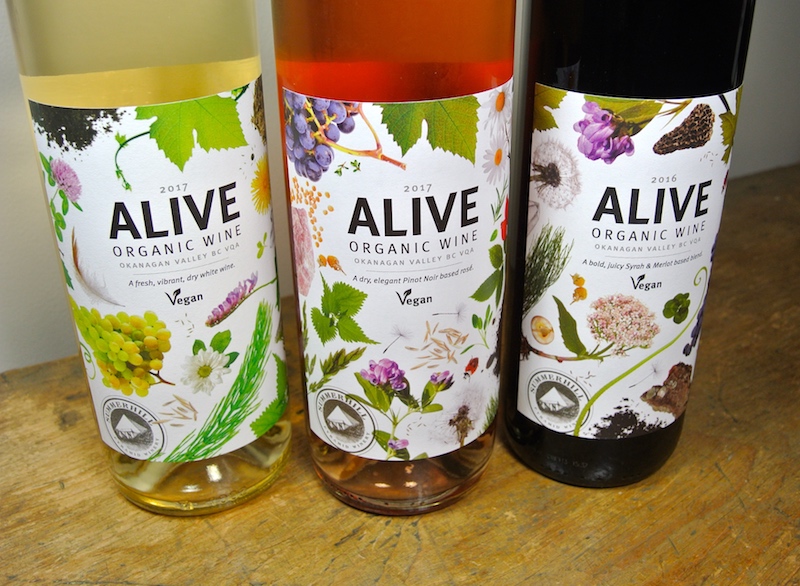
The Alive Organic series from Summerhill that was developed for B.C. government liquor stores a few years ago and has remained one the winery’s fasting growing labels
While all the wines at Summerhill are organic, and “vegan” friendly, the Alive brand punctuates that fact with a vegan tag on the front label.
In conventional winemaking there are different animal-derived fining agents (such as egg whites, sturgeon bladder and milk protein) on the market that can be used to fix issues such as bitterness and cloudiness in wines.
Summerhill uses bentonite clay, a calamus clay that is mined. It binds with the unstable proteins in whites so that it does not go cloudy in the bottle.
The other vegan tool Summerhill uses is time. If you leave barrels full of wine and top them up regularly, it allows a small amount of oxygen in that will pulverize or fine the harsh phenolics that fining agents will take out. Summerhill leaves wine in barrels for a lot longer and uses neutral oak so that you don’t get a lot of oak flavour, but it does help concentrate the wines, and does a lot of the things these animal based fining agents do.
The bottom line here is this: you don’t have to be a vegan to appreciate these Summerhill vegan wines and the Alive brand. They are well-made and affordable wines that are perfect for the summer patio or dinner table.
Summerhill Alive Organic White 2017 ($18, 88 points) — This blend of Kerner, Pinot Gris, Gewurztraminer, Chardonnay and Riesling shows fresh aromatics of grapefruit, peach, apricot and citrus. It feels dry and refreshing on the palate with a range of ripe summer fruits and mouth-watering acidity.
Summerhill Alive Organic Rosé 2017 ($18, 90 points) — This 100% Pinot Noir rosé is a lovely light pink colour with a nose of pretty red berries, pomegranate and citrus zest. It’s perfectly dry and refreshing on the palate with seamlessly integrated red berries, touch of lemon zest and a vibrant, clean finish.
Summerhill Alive Organic Red 2016 ($23, 88 points) — Partially fermented and aged in oak tanks for 6 months and then aged in neutral barriques for 12 months. It’s a blend of Syrah, Merlot and Cabernet Franc and has a bold nose of boysenberry, cherry, blueberry and savoury spice notes. It’s juicy and ripe on the palate with nice mix of red and dark fruits, earth, smoke and good vibrancy through the finish.
JoieFarm’s Chic Fille
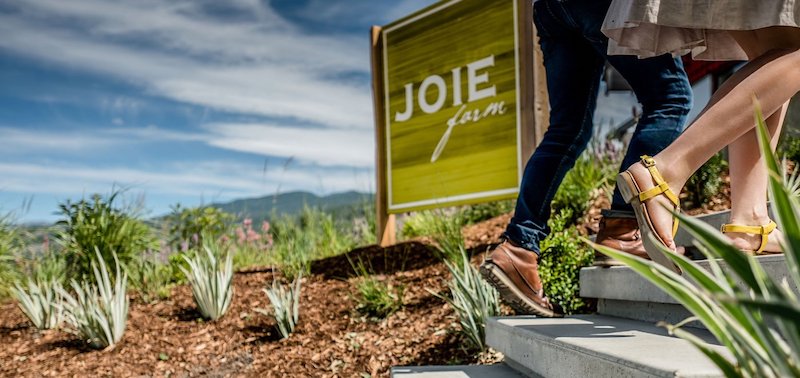
For JoieFarm winemaker and proprietress Heidi Noble, the name of her new “side label” Chic Fille is really a double entendre — it literally translates as “elegant or pretty girl” but colloquially it’s tongue-in-cheek for “cool girl.”
The first wine from the Chic Fille label, the Pinot Meunier Rosé, explores Noble’s desire to pursue a few cool “singular, natural winemaking techniques, which were the genesis of the many standard cellar practices incorporated in the core JoieFarm portfolio.”
Noble already takes a very natural or minimalist approach to winemaking, but has never made it her raison d’être for making wine, but rather as a path to get to a place that is focused on making naturally balanced, fresh and textural wines, she says.
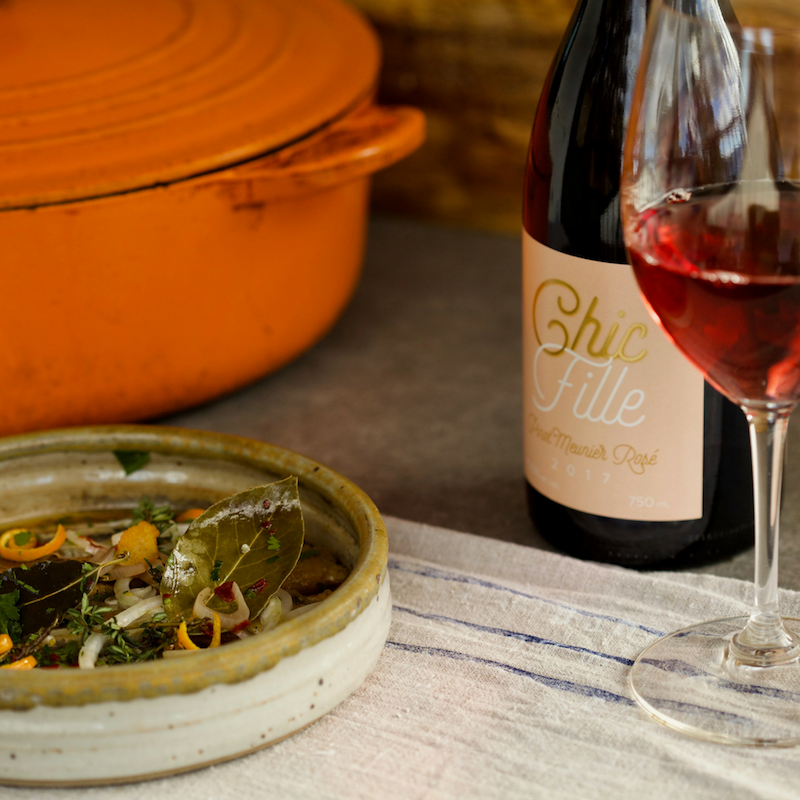
Chic Fille is Noble’s opportunity to express her chosen wines in the lineup in a totally pure and natural way. “I want to use this side project as a platform to about these techniques — not glorify them individually or seek praise, but rather to use them as a talking point for what it means to be artisanal, to craft, to be self-taught,” she says.
Here are my thoughts on the first wine in the series:
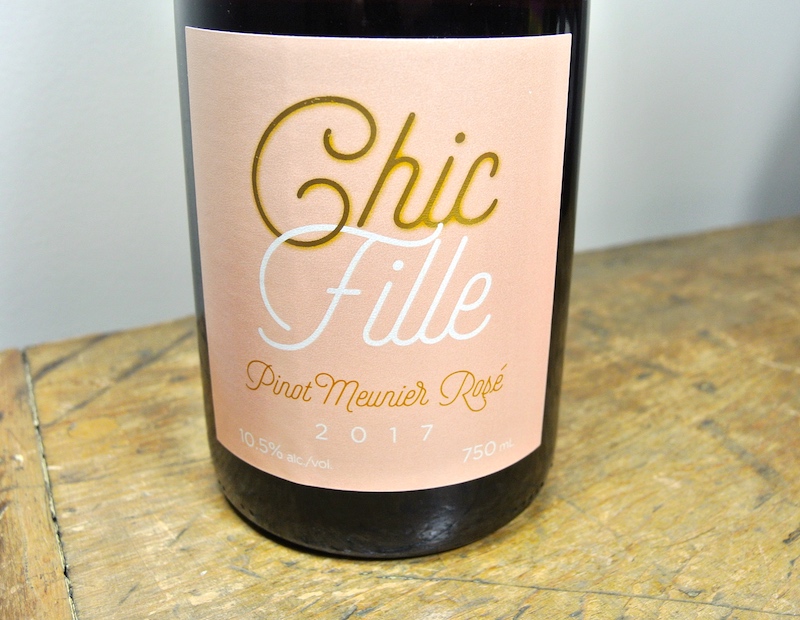
JoieFarm Chic Fille Pinot Meunier Rosé 2017 ($35, 91 points) — Destemmed grapes were soaked skins to juice for two days at cellar temperatures. The must was dumped by gravity into the press and a slow, gentle pressing was utilized. Noble believes it’s important to press rosé off the skins to extract a bit of tannin. No sulphur was added at the press pan, which allowed the must to hyper-oxidize. The wine just was fermented naturally in neutral 550L oak puncheon after 3 days. The finished wine was racked off of its gross lees and then aged on its fine lees for five months to add a briny freshness to the wine.
The wine shows a light cherry red colour in the glass and has an interesting umami nose of earth and foraged mushroom notes with bright watermelon, cherry, bramble and dried herbs. There is some reduction on the palate, an almost backward, rustic wine with tangy red fruits, savoury herbs, some tannic structure and bracingly dry and fresh through the finish. Put out a plate of salty foods, olives, almonds and charcuterie and enjoy. This rosé might not be for everyone, but it will certainly stimulate a wonderful conversation.






Comment here